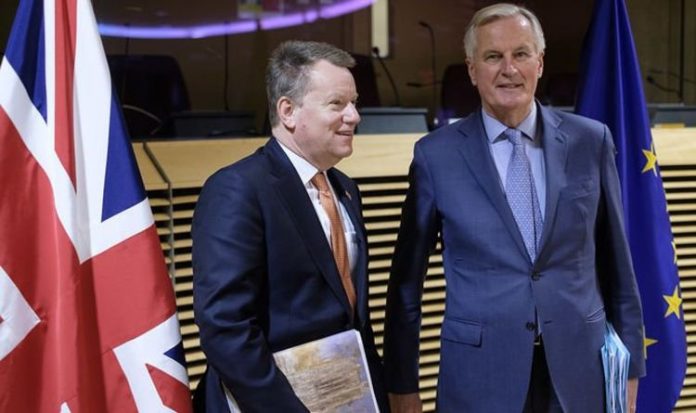Britain has set a deadline of October for the trade deal to be signed off. The transition period ends on December 31. OneWhitehall source said yesterday that Mr Gove was spending nearly all his time on the preparations. Getting the country ready for the end of the post-Brexit transition out of EU regulations was the Government’s top priority after the coronavirus crisis, they added.
The insider said: “Lots of the changes to get ready for the transition are happening regardless of whether we get a trade deal, so the Cabinet Office is ramping up preparations.”
Mr Gove, who was a leading figure in the referendum Vote Leave campaign, is accelerating his efforts following growing suspicions among ministers that EU chiefs are holding out for a “Brexit in name only deal” that keeps the UK tied to Brussels for ever.
They expect Boris Johnson to abandon the push for a deal and accept a relationship with the bloc based on World Trade Organisation rules if EU chief negotiator Michel Barnier fails to back down.
The seventh round of trade talks broke up last week, with both sides admitting there had been very little progress.
On Friday, Mr Barnier accused the UK negotiating team of lacking flexibility and “wasting valuable time.”
He added that he was “disappointed” and “concerned”.
UK officials expressed frustration that Mr Barnier and his team were refusing to budge from their demands that Britain accept continuing Brussels control over a swathe of issues, including fishing rights, industrial policy and business regulations.
They believe the EU position is simply not compatible with the UK’s new status as an independent sovereign state since leaving the bloc in January.
Boris Johnson’s chief negotiator Lord Frost is due to hold another round of talks in September.
In a statement on Friday, the peer said he was still aiming for a deal but admitted agreement was “not easy.”
He is seeking a “bare bones” free trade deal similar to the EU’s existing arrangements with Canada and South Korea.







